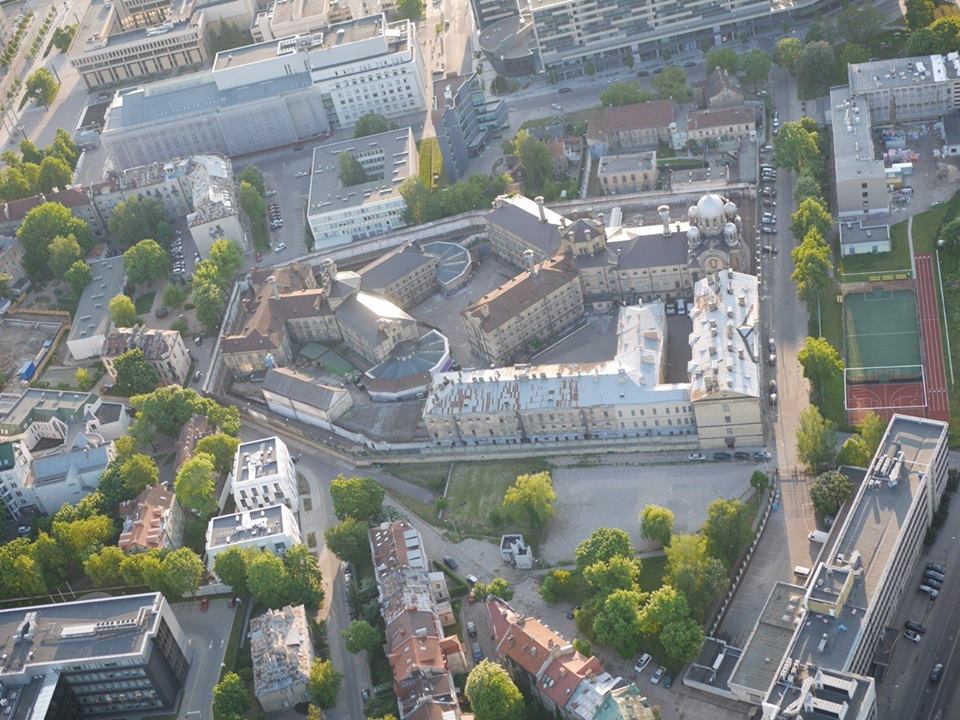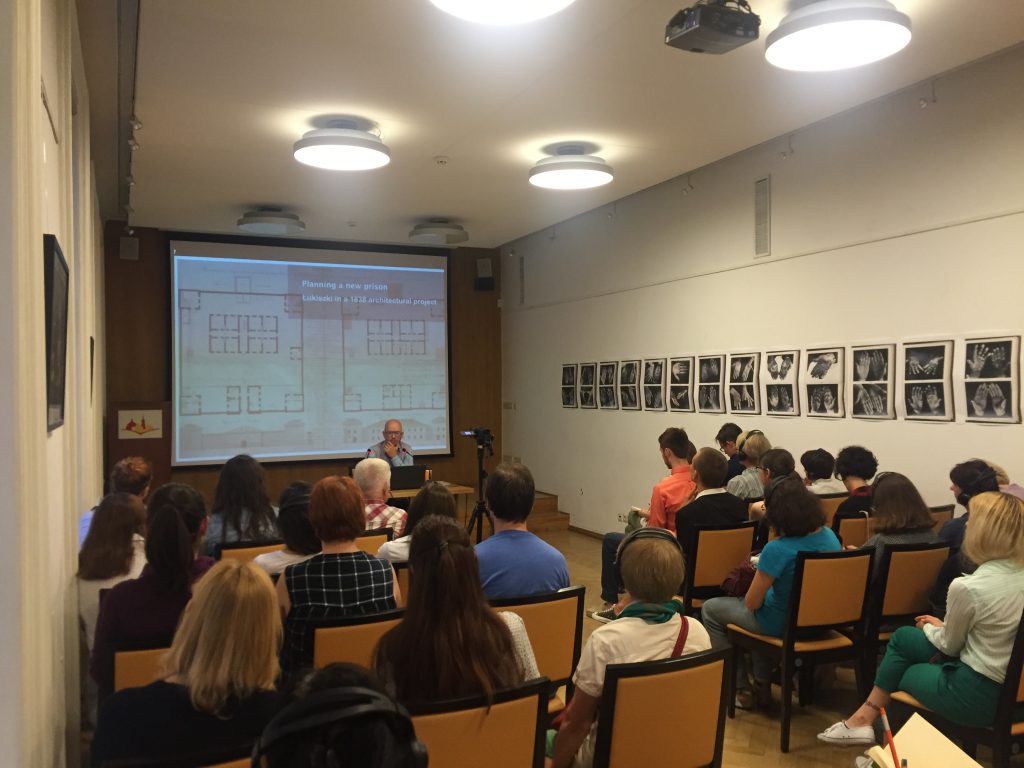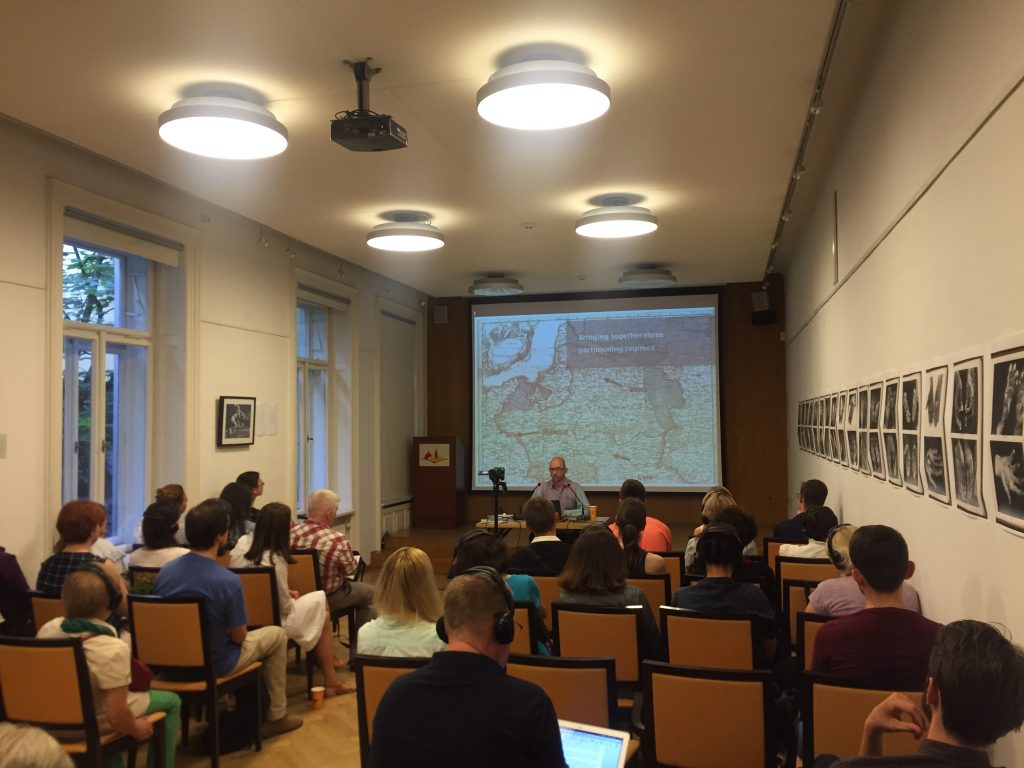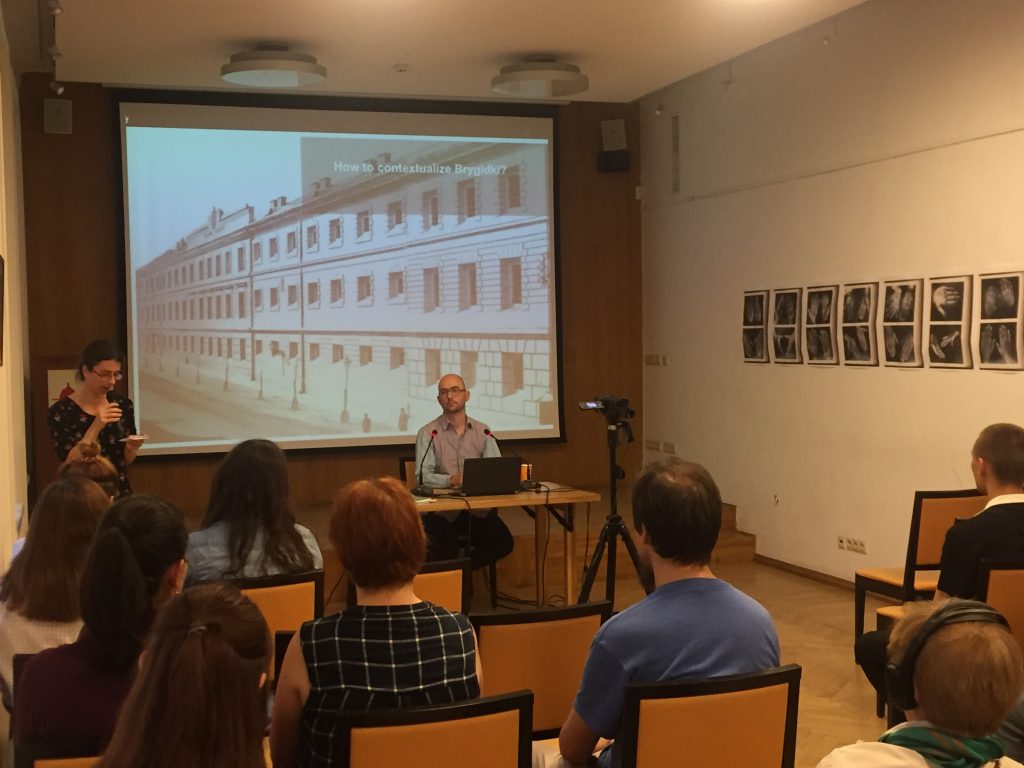Monasteries as prisons and prisons as religious spaces. Statehood, religion and incarceration in the dived Rzeczpospolita
Felix Ackermann
German Historical Institute, WarsawJune 20, 2018 / 6.30 pm
Center for Urban History, Lviv
When the Rzeczpospolita was divided in the late 18th century, prisoners were still held in wooden lochs. In this lecture, Dr. Ackermann looks into a century of planning, building and managing new infrastructures for the incarceration of prisoners in Lviv, Vilna and Rawicz. He understood new prisons as facilities for new practices of punishment and physical representations of Russian imperial statehood. At the same time, the multiethnic and -religious character of the cities were echoed by the spatial organization of new prisons. As religious teaching was at the core of reformist ideas, the partitioning powers already in the 1820s reused Catholic religious spaces and allowed Jews to practice reading and praying inside the prison walls. In the Russian Empire e.g. Jews were able to self-organize kashrut as the state provided Jewish prisoners with a separate kitchen for kosher food. Felix Ackermann worked in Lviv archives in order to include the case of Brygidki into his history of the reusage of Catholic religious urban spaces as state infrastructures. He provided an overview of his findings and is looking forward to a discussion how to write the history of Brygidki from various perspectives.
Felix Ackermann
is a historian and anthropologist trained in cultural and political studies at European University Viadrina and London School of Economics and Political Science. In Frankfurt (Oder) he defended in 2008 a PhD about ethnicity and urban space in Hrodna. Between 2011–2016, he has been DAAD associate professor for Applied Humanities at European Humanities University in Vilnius. Co-Editor of a Mapping Post-Socialist Urban Spaces book series published by the Laboratory of Critical Urbanism at Vilnius Art Academy. Since 2016 he is research fellow at the German Historical Institute Warsaw.



